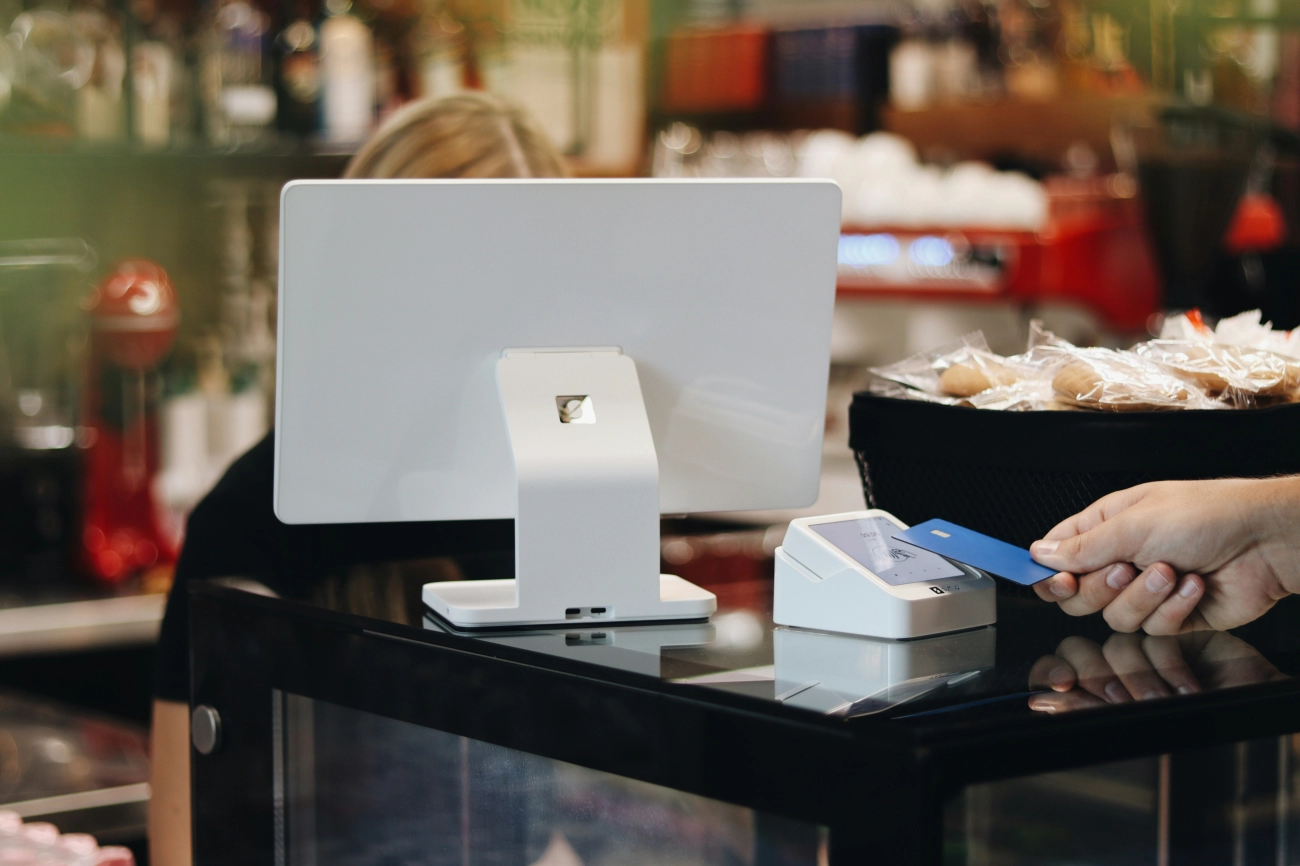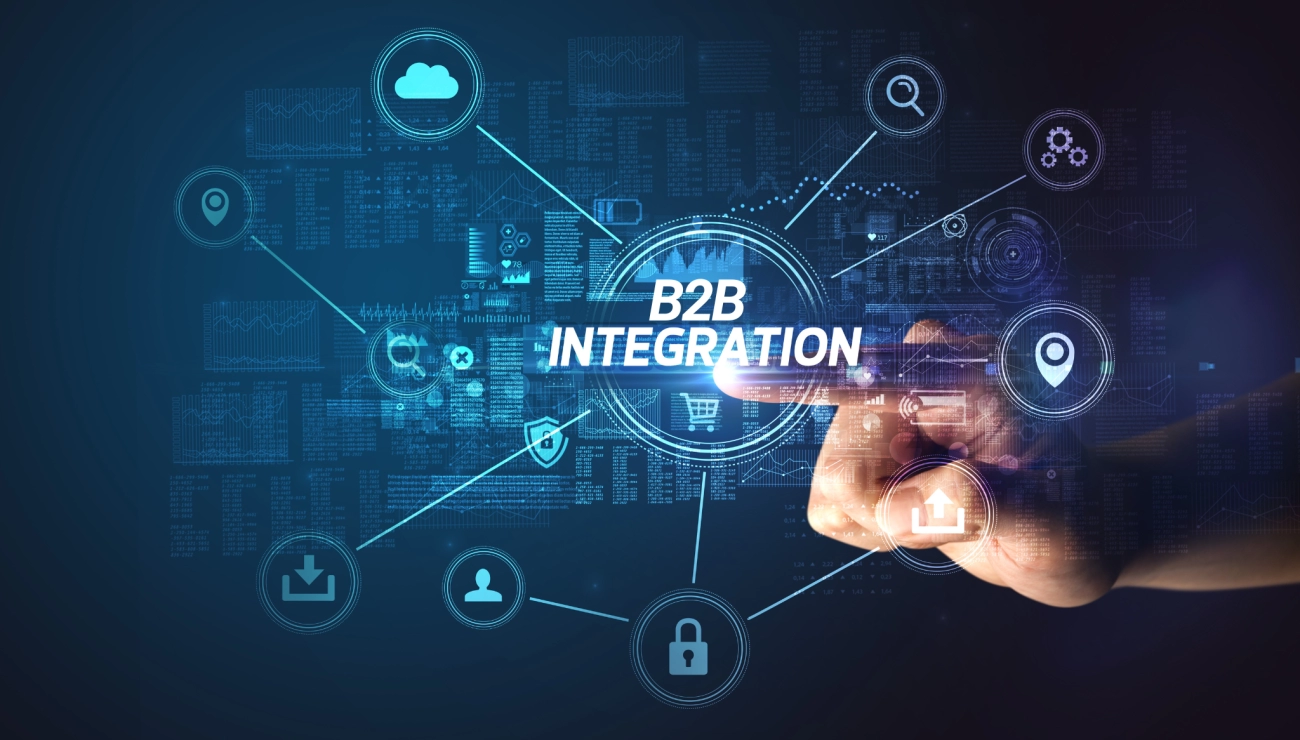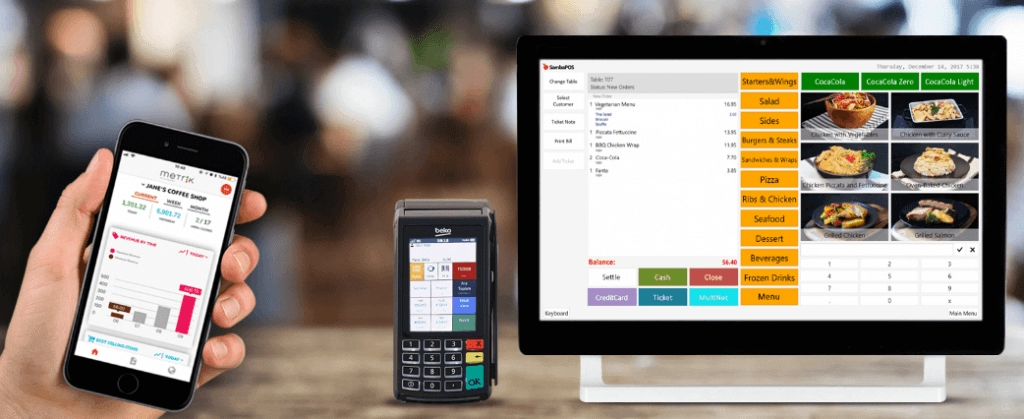POS System Integration for B2B Businesses Boosting Efficiency and Growth

If you’re running a B2B business, you already know how complicated managing wholesale orders, inventory, and payments can get. That’s where POS system integration for B2B businesses changes the game—streamlining your operations by syncing everything from your physical sales floor to online portals and ERPs. In this post, you’ll discover why a seamless POS integration isn’t just a nice-to-have but a must-have for boosting efficiency, cutting costly errors, and scaling your business smarter. Ready to unlock faster order processing and real-time inventory updates that keep your customers—and your bottom line—happy? Let’s get into what makes B2B POS integration so powerful.
The Core Challenges of Disconnected POS Systems in B2B Environments
In the complex world of B2B POS software and wholesale operations, disconnected point-of-sale systems create serious headaches for businesses. Without seamless integration, your wholesale inventory management suffers, and operational inefficiencies quickly pile up. Let’s break down the core challenges many US B2B firms face when their systems don’t talk to each other.
Inventory Discrepancies Cause Overselling and Stockouts
In multi-vendor setups, managing inventory across channels without real-time syncing often leads to inventory discrepancies. This results in:
- Overselling products that are out of stock
- Unexpected stockouts that delay order fulfillment
- Lost revenue and damaged customer trust
These issues are especially common when your POS, ERP, and supplier systems operate in isolation. Without real-time stock synchronization, forecasting demand and managing bulk orders becomes guesswork, impacting both warehouse efficiency and customer satisfaction.
Manual Reconciliation Delays Invoicing and Payments
Bulk orders are the lifeblood of B2B sales, but when reconciliation depends on manual processes, it slows down your entire sales cycle. Delays occur in:
- Accurate invoicing
- Payment processing, including slower ACH transactions
This adds administrative overhead and cash flow constraints, hurting your ability to scale efficiently. Without automation and EDI compliance for POS, firms waste precious time fixing errors and chasing payments instead of focusing on growth.
Fragmented Customer Data Limits Personalized Wholesale Experiences
B2B buyers expect personalized service just like retail customers—but disconnected systems scatter customer profiles across CRM, accounting, and POS platforms. This leads to:
- Fragmented customer insights
- Missed opportunities for targeted pricing and promotions
- Poor wholesale relationship management
Without a consolidated view of customer behavior and order history, tailoring quotes or managing bulk order discounts becomes a challenge.
How US B2B Firms Lose Billions Annually to Integration Gaps
The US B2B sector is losing billions each year because of these integration gaps. Disconnected POS environments result in:
- Inefficient inventory and order management
- Delayed billing cycles
- Suboptimal customer experiences
- Lost business opportunities
For many distributors and wholesalers, these gaps are not just operational issues—they’re major financial drains that hold back growth.
Integration Creates a Single Source of Truth
The good news is, POS system integration for B2B businesses solves these problems by creating a single source of truth. When your inventory, ERP, payment, and CRM systems work in harmony, you get:
- Accurate, real-time data across all channels
- Faster order processing and invoicing
- Personalized, data-driven wholesale experiences
Integration is not just technology—it’s the backbone for a scalable, efficient, and customer-focused B2B operation ready to compete and win in today’s fast-paced market.
Ready to explore how integrated POS systems cut errors, speed up invoicing, and empower your team? Let’s dive into the key benefits and how SDLPOS can help your business transform.
Key Benefits of POS System Integration for B2B Businesses

Integrating your POS system in a B2B setup brings big wins for efficiency and revenue. Here’s how it changes the game for wholesale inventory management and bulk order processing:
Real-Time Inventory Syncing Drives Accuracy
One of the biggest advantages is real-time inventory syncing across all sales channels. This means your stock levels stay updated instantly, cutting down errors by as much as 50%. For US B2B firms dealing with multi-vendor systems or omnichannel B2B sales, this eliminates costly overselling or stockouts. A recent case study showed a distributor reduced inventory mistakes in half just by syncing their ERP POS integration with their online store.
Automated Workflows Simplify Wholesale Pricing and EDI Compliance
Manual handling of wholesale quotes, pricing tiers, and electronic data interchange (EDI) compliance slows down operations. POS integration automates:
- Custom wholesale pricing quotes
- Bulk order approvals
- EDI document exchanges
This streamlines bulk order processing systems and speeds up invoicing and payments, avoiding ACH delays common in disconnected workflows.
Enhanced Analytics Improve Demand Forecasting and Supplier Negotiations
Integrated systems collect rich data from sales, inventory, and customer behavior. This helps you:
- Forecast demand more accurately
- Spot trends before they impact stock
- Negotiate better terms with suppliers
These insights boost your wholesale inventory management and cash flow, giving your B2B business a powerful edge.
Improved Compliance and Scalability for Growing B2B Operations
Whether you’re handling large bulk orders or managing multi-vendor POS solutions, integration ensures you meet:
- PCI DSS and wholesale data security standards
- Tax and regulatory compliance
It also scales with your growth, supporting more customers, SKUs, and complex pricing without breaking the system. Cloud-based POS for distributors like SDLPOS provides this flexible backbone needed to keep pace with expanding US B2B markets.
Integrated POS systems aren’t just about cutting errors or speeding up orders—they create a single source of truth that drives smarter decisions and healthier margins. For US B2B businesses, this kind of setup is critical to stay competitive and profitable.
Essential POS System Integration Types for B2B Businesses
When it comes to POS system integration for B2B businesses, the right connections make all the difference. Unlike retail, B2B operations deal with bulk orders, complex pricing, and multi-vendor dynamics. Here are the key integration types designed to keep your wholesale sales and inventory running smoothly.
eCommerce and ERP Linkages for Omnichannel Fulfillment
Integrating your eCommerce platform with ERP systems like NetSuite or SAP is critical for seamless order fulfillment across all channels. These integrations ensure:
- Real-time inventory updates across warehouses and sales points
- Smooth handling of bulk order workflows and batch processing
- Automated order routing to the appropriate fulfillment centers
This connection makes omnichannel B2B sales more manageable, reducing stockouts and overselling.
Payment Gateways Built for High-Value B2B Transactions
B2B payments are often larger and involve different terms than retail. Integrations with payment gateways such as Stripe and Authorize.Net by SDLPOS support:
- High-value transactions with enhanced security measures
- Support for ACH payments and invoicing workflows
These gateways ensure payments are processed efficiently and securely, driving cash flow and reducing delays.
CRM and Accounting Sync for Customer and Financial Management
Linking your POS with CRM systems and accounting software like QuickBooks helps centralize customer data and financial records. This means:
- Up-to-date customer profiles and order histories for personalized wholesale experiences
- Automated financial reporting and easier tax compliance
- Streamlined invoicing and payment reconciliation
Keeping sales and accounting data in sync improves accuracy and saves time.
Multi-Vendor Tools for Commission Tracking and Supplier Portals
B2B businesses often work with multiple suppliers and sales reps. POS integrations that include multi-vendor management tools provide:
- Transparent commission tracking for sales agents
- Dedicated supplier portals for order updates and inventory status
- Simplified bulk handling workflows tailored to B2B needs
These tools help coordinate efforts across your supply chain and sales teams effectively.
By focusing on these essential B2B POS software integrations, you can handle bulk orders, complex pricing, and multi-vendor setups with confidence. For more on POS hardware suited for complex inventory needs, check out our guide to POS hardware for businesses with complex inventory needs.
When your POS integrates well with these systems, your wholesale distribution runs smoother, customers feel valued, and your backend stays clean and accurate.
Step by Step Guide to Implementing POS System Integration for B2B Businesses with SDLPOS

Integrating your POS system in a B2B environment doesn’t have to be complicated. With SDLPOS’s API-first design and B2B-focused tools, the process is streamlined, scalable, and tailored for wholesale needs. Here’s a clear path to get your systems talking smoothly—from inventory to invoicing.
Step 1 Assess Current Systems and Data Flows
- Audit existing POS, ERP, and inventory management workflows to understand data touchpoints.
- Identify gaps in order processing, bulk order handling, and multi-vendor integration.
- Use the SDLPOS integration checklist to ensure no critical step is missed during evaluation.
- This helps align your wholesale inventory management and order fulfillment channels for seamless syncing.
Step 2 Choose Compatible Hardware and Software
- Select POS terminals and payment gateways that work well with SDLPOS’s universal API.
- Prioritize hardware optimized for bulk order processing and high-value B2B transactions.
- Opt for cloud-based POS systems that allow easy remote access and multi-location syncing.
- SDLPOS supports key B2B tools like EDI compliance and automated pricing quotes, simplifying software pairing.
Step 3 Map Data Migration for Inventory and Customer Profiles
- Plan data transfer from existing systems to SDLPOS without interrupting daily operations.
- Use migration tools that support real-time stock synchronization to prevent stockouts or overselling.
- Ensure customer data, including wholesale pricing tiers and payment terms, move over intact.
- Proper mapping reduces manual reconciliation delays and errors in invoicing.
Step 4 Test and Launch with Phased Rollout
- Run pilot tests focused on core B2B functions: bulk order processing, commission tracking, and supplier portals.
- Gradually introduce SDLPOS integration across departments or locations to minimize disruptions.
- Leverage SDLPOS’s support team to address B2B-specific scenarios, such as delayed ACH payments and multi-vendor setups.
Step 5 Monitor and Optimize Using Built-in Dashboards
- Use SDLPOS’s analytics dashboards to track key performance indicators like order accuracy and revenue growth.
- Regularly review inventory levels, customer behavior, and payment workflows to find optimization opportunities.
- Adjust system settings or workflows based on real-time insights to maximize ROI and compliance.
By following these steps, your B2B business gains a single source of truth across all channels—driving faster order processing, reducing errors by up to 50%, and improving cash flow. For help troubleshooting common issues during this process, visit Troubleshooting Common POS System Issues.
Overcoming Common POS System Integration Hurdles in B2B Settings
Integrating POS systems in B2B environments can feel like navigating a maze, especially with multiple vendors and legacy tech involved. Here’s how SDLPOS helps you clear these common hurdles smoothly.
Legacy System Compatibility with SDLPOS Universal API
Many US B2B companies still rely on dated ERP or inventory software that doesn’t naturally talk to modern POS platforms. SDLPOS offers a universal API designed to bridge old and new tech effortlessly. This means you don’t need expensive replacements or total system overhauls. Your existing wholesale inventory management and ERP systems can sync up with SDLPOS for real-time stock synchronization and smoother order handling.
Security and Compliance for Wholesale Data
Security is critical, especially when handling large B2B payments and sensitive customer info. SDLPOS meets PCI DSS standards and uses advanced encryption specifically tailored for wholesale data security. This keeps your payment gateways and bulk order processing safe from breaches, helping maintain compliance without extra headaches.
Staff Training with SDLPOS Intuitive Interface and Support
New tech can slow your team down if it’s complicated. SDLPOS focuses on ease of use with an intuitive interface designed for quick learning. Plus, 24/7 customer support helps your staff troubleshoot issues fast, minimizing workflow disruptions. This makes training less stressful and adoption smoother, even for less tech-savvy teams.
Managing Cost Overruns with Transparent Pricing
Custom POS integrations can balloon budgets quickly. SDLPOS offers transparent pricing upfront, so you know what you’re paying for without hidden fees. Compared to custom development costs, SDLPOS gives you a scalable solution that fits your budget and grows with your operations.
Pro Tip Start Small with Pilot Integrations
Jumping straight into full-scale integration might feel risky. A smart approach is to:
- Start with a pilot integration on a limited product line or vendor
- Monitor results using SDLPOS dashboards
- Scale gradually based on ROI and system stability
This phased method reduces risk, keeps costs in check, and helps your team get comfortable with changes.
By tackling legacy systems, security, training, and costs head-on, SDLPOS makes B2B POS system integration less daunting—helping US distributors and wholesalers boost efficiency without the usual struggles.
Why SDLPOS Is the Top Cash Register POS Supplier for B2B Integration
When it comes to POS system integration for B2B businesses, SDLPOS stands out for a reason. It’s built from the ground up with US wholesalers in mind, offering a cloud-based, modular design that makes scaling simple and keeps your data secure. What really sets SDLPOS apart is its suite of native B2B tools like bulk invoicing and EDI compliance support, which are essential for smooth wholesale inventory management and faster payment cycles.
SDLPOS Compared to Competitors
Here’s a quick look at how SDLPOS stacks up against other popular options like Square and Lightspeed:
| Feature | SDLPOS | Square | Lightspeed |
|---|---|---|---|
| Integration Speed | Fast API-first setup | Moderate integration | Slower multi-step integration |
| B2B Customization | Extensive (bulk orders, EDI) | Limited wholesale features | Basic B2B capabilities |
| Uptime and Reliability | 99.9% cloud uptime | Good but less focused on B2B | Variable with added modules |
| Multi-Vendor Support | Native supplier portals | No native multi-vendor tools | Requires third-party add-ons |
| Wholesale Payment Gateways | PCI compliant, supports ACH | Primarily retail card focus | Partial B2B payment features |
Real Results From US B2B Businesses
Consider this example from a US wholesaler who switched to SDLPOS: they saw a 40% faster order processing time within the first three months. By syncing inventory in real time and using automated bulk invoicing, their team freed up hours weekly – speeding up everything from purchase orders to customer payments. This addition made a real impact on cash flow and operational efficiency.
Get Started With a Free Integration Audit
If you’re ready to close those costly integration gaps and boost your B2B POS software setup, SDLPOS offers a free integration audit. This gives you a clear picture of your current systems and how SDLPOS can seamlessly unify your ERP, payment gateways, and inventory management for a truly connected wholesale experience.
Reach out today and see how SDLPOS can transform your B2B operations with faster, smarter, and more reliable POS integration.
